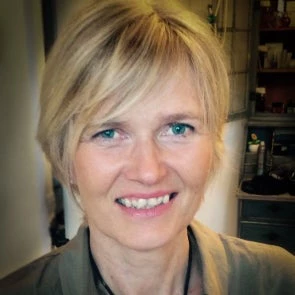 While the people in the Middle East and North Africa (MENA) have been coping with a harsh environment for thousands of years, climate change offers unprecedented challenges. With rapid climate change existing coping mechanisms are often becoming inadequate or obsolete; hence climate change impacts negatively on people’s lives and livelihood. Solutions to reduce vulnerability and capitalize on opportunities are presently difficult for policy makers in the region to identify and implement. This has motivated the World Bank and the League of Arab states to produce the flagship report:
Adaptation to a Changing Climate in the Arab Countries.
The objective is to provide information on current and future climate variability and change and provide actions and policy recommendations that can improve people's lives and livelihood in a changing climate.
While the people in the Middle East and North Africa (MENA) have been coping with a harsh environment for thousands of years, climate change offers unprecedented challenges. With rapid climate change existing coping mechanisms are often becoming inadequate or obsolete; hence climate change impacts negatively on people’s lives and livelihood. Solutions to reduce vulnerability and capitalize on opportunities are presently difficult for policy makers in the region to identify and implement. This has motivated the World Bank and the League of Arab states to produce the flagship report:
Adaptation to a Changing Climate in the Arab Countries.
The objective is to provide information on current and future climate variability and change and provide actions and policy recommendations that can improve people's lives and livelihood in a changing climate.
Thousands of people throughout the Arab world are being impacted by climate change through increased cyclones, floods, and multi-year and recurrent droughts. In Syria more than 250,000 families have left the arid rural areas after their assets, including livestock, have been slowly and steadily depleted.
Some decades ago pastoralist such as the Bedu could move to new areas where they could find grass and water to feed their livestock. Now with growing populations, borders and property rights it is often difficult, if not impossible to move to where the grass is greener. Instead, livestock often succumbs to drought and the only option is to move to the outskirts of towns and cities where the pastoral way of life so critical the Bedu culture is lost, assets are depleted and the skills of the rural poor are hard to deploy. With few assets and often with few social networks, they have limited capacity to adapt and face enormous hardship.
Another example of such hardship is the current drought in the horn of Africa which has led to migration and depleted heath and caused hunger for thousands of people. Due to the lack of adequate food intake, malnutrition is widespread and people are traveling often far in search not only of new livelihoods but often for survival. This illustrates the hardship climate change is leading to for many people in MENA.
Let us not forget that the poorest in the region are the hardest hit and often the most vulnerable to climate variability and change. This is because poor people are the most dependent on natural resources for their livelihoods and well-being and often live in geographical locations which are particularly vulnerable to climate change such as on steep slopes, in valleys, or in arid areas. With the increased impact of climate change already difficult situations can become life threatening.
It is no secret that it is getting warmer, dryer and more variable in MENA. In 2010 alone four countries in the region logged temperatures above 50 C.
The changing climate impacts people's well-being in a multitude of way. For example: through their livelihoods, health, access to water and assets as well as gender relations in both rural and urban areas. This calls for action and this is what the report is aiming to provide.
The report is being produced by regional and international experts in the above mentioned areas. By making sure that researchers in these countries play a prominent role in the process of producing the report, it is more likely that local knowledge and experience will be captured and options to address the changing climate in the region will be addressed adequately and appropriately for the reality the the people in the region live with today and in the near future.
The drafting team of roughly 20 regional and international experts are meeting this week in Tunisia to advance the production of the report. The draft report, "Adaptation to a Changing Climate in the Arab Countries," can be found on www.worldbank.org/mna/climateadapt


Join the Conversation